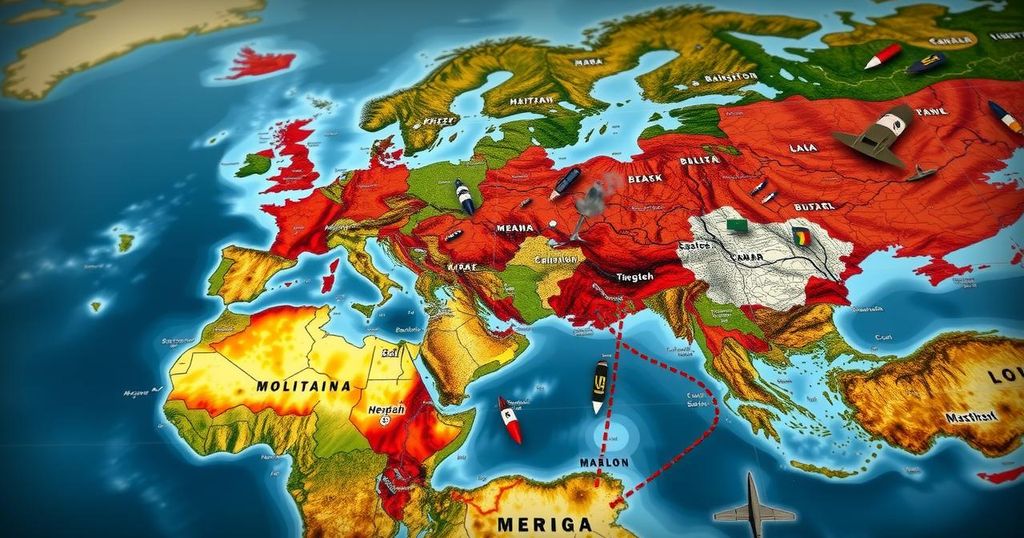The Iraq War: An Overview of Events and Implications
The Iraq War spanned from March 2003 to December 2011, starting with a U.S. and U.K. invasion that quickly toppled Saddam Hussein’s regime. However, the subsequent years saw a violent insurgency and sectarian conflict, leading to significant casualties among U.S. forces and ongoing instability in Iraq. The war’s justification hinged on alleged weapons of mass destruction in Iraq, a claim later disproven, resulting in a controversial legacy.
The Iraq War, also known as the Second Persian Gulf War, occurred from March 2003 to December 2011 and involved major combat operations led by the United States and the United Kingdom against Iraq. Initially marked by a swift invasion that resulted in the rapid defeat of the Iraqi military and the regime of Saddam Hussein, the conflict evolved into a prolonged period of occupation and insurgency. In the early stages, American and British forces successfully captured Baghdad, leading to the collapse of Hussein’s government. Despite the quick initial success, the following years were characterized by violent insurgency, sectarian conflict, and rising casualties, particularly among U.S. troops, totaling approximately 4,500 killed and around 32,000 wounded. The war stemmed from the U.S. government’s belief that Iraq possessed weapons of mass destruction and posed a threat following the September 11 terrorist attacks. These claims, however, were later found to be unfounded, complicating the war’s legacy and leading to significant international controversy. Following the initial military campaign, the U.S. faced an insurgency that targeted occupying forces and Iraqi civilians alike, resulting in widespread violence. In efforts to stabilize the country, the U.S. implemented a surge in troop levels in 2007, which eventually led to a reduction in violence. The U.S. withdrew its forces by December 2011, concluding nearly nine years of military presence in Iraq, a period that left long-lasting impacts on both Iraq and the United States. The conflict remains a critical event in contemporary history, shaping geopolitical dynamics and domestic policies pertaining to military engagement.
The Iraq War originated from a complex interplay of historical grievances and immediate post-9/11 U.S. security concerns. Following Iraq’s defeat in the Persian Gulf War (1990-91), the regime of Saddam Hussein maintained power through oppressive measures against dissent and minority groups, leading to the establishment of international sanctions against Iraq aimed at curbing its military capabilities, particularly regarding weapons of mass destruction (WMD). The U.N. inspections throughout the 1990s revealed the presence of prohibited weapons, fueling further tensions. Under President George W. Bush, the U.S. administration cited Iraq’s purported WMD stockpile and connections to terrorist organizations as justification for military action, culminating in the invasion of Iraq in 2003.
In summary, the Iraq War, beginning in March 2003 and concluding in December 2011, was characterized by its initial rapid military success followed by a tumultuous period of insurgency and occupation. The war raised critical questions regarding the bases for military intervention, the handling of post-conflict reconstruction, and strategies for managing insurgent activities. Its legacy continues to influence U.S. foreign policy and perceptions of military engagement in the Middle East.
Original Source: www.britannica.com




Post Comment